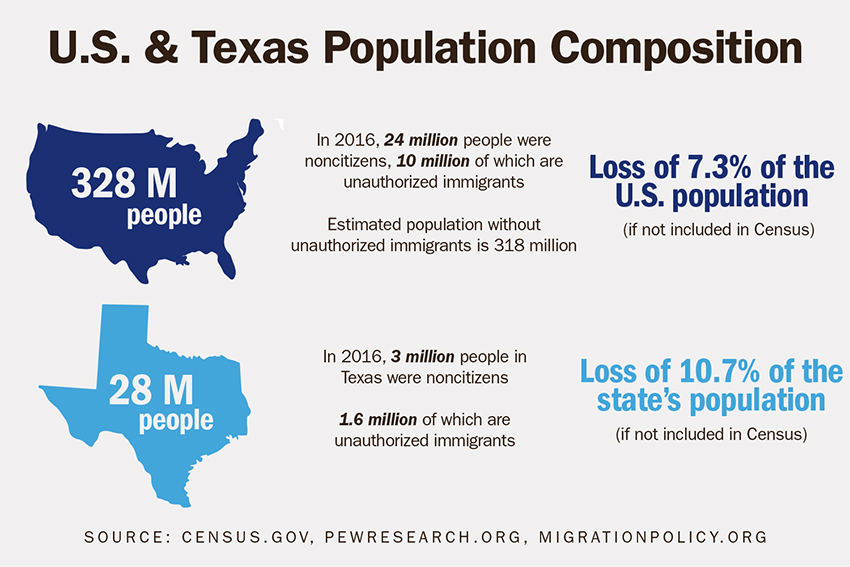A federal judge in New York has barred the Trump administration from adding a citizenship question to the 2020 census, calling the Commerce Department’s decision a “veritable smorgasbord” of violations of federal law.
The lawsuit — brought by a coalition of states led by New York — is likely headed to the Supreme Court, and should be decided before the Commerce Department begins printing census forms this summer.
But if the question ends up on the 2020 census, experts say it could result in undercounting the U.S. population, which would hurt Texas’ political standing because of its high immigrant population.
Critics of adding the census question said its purpose is to discourage noncitizens from participating in the census out of fear of being targeted for deportation.
“The attempts by the Trump Administration to mandate a question about citizenship were not rooted in a desire to strengthen the census process and would only undermine our immigrant communities,” Letitia James, New York attorney general and the lead plaintiff of the lawsuit, said in a press release.
However, in his 277-page decision, federal judge Jesse Furman wrote the plaintiffs failed to show the intent of the question was to discriminate against the approximately 24 million noncitizens in the country.
Instead, Furman ruled Commerce Secretary Wilbur Ross violated the federal Administrative Procedures Act. The act, Furman wrote, “prohibits federal agencies from acting in a manner that is arbitrary and capricious.”
“(Ross) failed to consider several important aspects of the problem; alternately ignored, cherry-picked, or badly misconstrued the evidence in the record before him … and failed to justify significant departures from past policies and practices,” Furman wrote.
Furman also wrote Ross failed to notify Congress of the changes to the census at least three years prior, as required by federal law.
Justice Department spokeswoman Kelly Laco told The Washington Post that administration officials are “disappointed” in Furman’s decision and they are “legally entitled to include the question on the census.”
Sociology professor Kelly Raley, who has studied census data collection, said it would be hard to find data supporting that the question is discriminatory, and even harder to prove it. Regardless, Raley agreed with the plaintiffs’ claim that adding the question back would likely result in an undercount if immigrant communities were afraid of responding. The question was removed in the 1960s after the implementation of the “longform” census, which asks more detailed questions to one percent of the population every year.
Clinical law professor Elissa Steglich, who works in UT’s immigration clinic, echoed the sentiment that noncitizens would fear being targeted, possibly for deportation, as a result of participating in the census. Steglich said it’s also possible the news about the question could have already begun to discourage participation among noncitizens.
“(Because of) fear, not only under this current administration, but multiplied by … (state) and local policies in place targeting immigrant communities, there would be a significant undercounting,” Steglich said.
If undercounting happened, Texas could lose billions in federal aid that is handed out based on population size, as noncitizens make up about 10 percent of the state’s population, Raley said. Because the number of seats in Congress is based on census data, the number of representatives may not accurately reflect Texas’ population. Based on current population growth estimates, the state is expected to gain a couple representatives.
“We won’t necessarily get our full share if the undercount is high,” said Raley, explaining that the state’s population growth could be pulled down by a miscount. “And not having an accurate count is not very good for our democracy.”





















